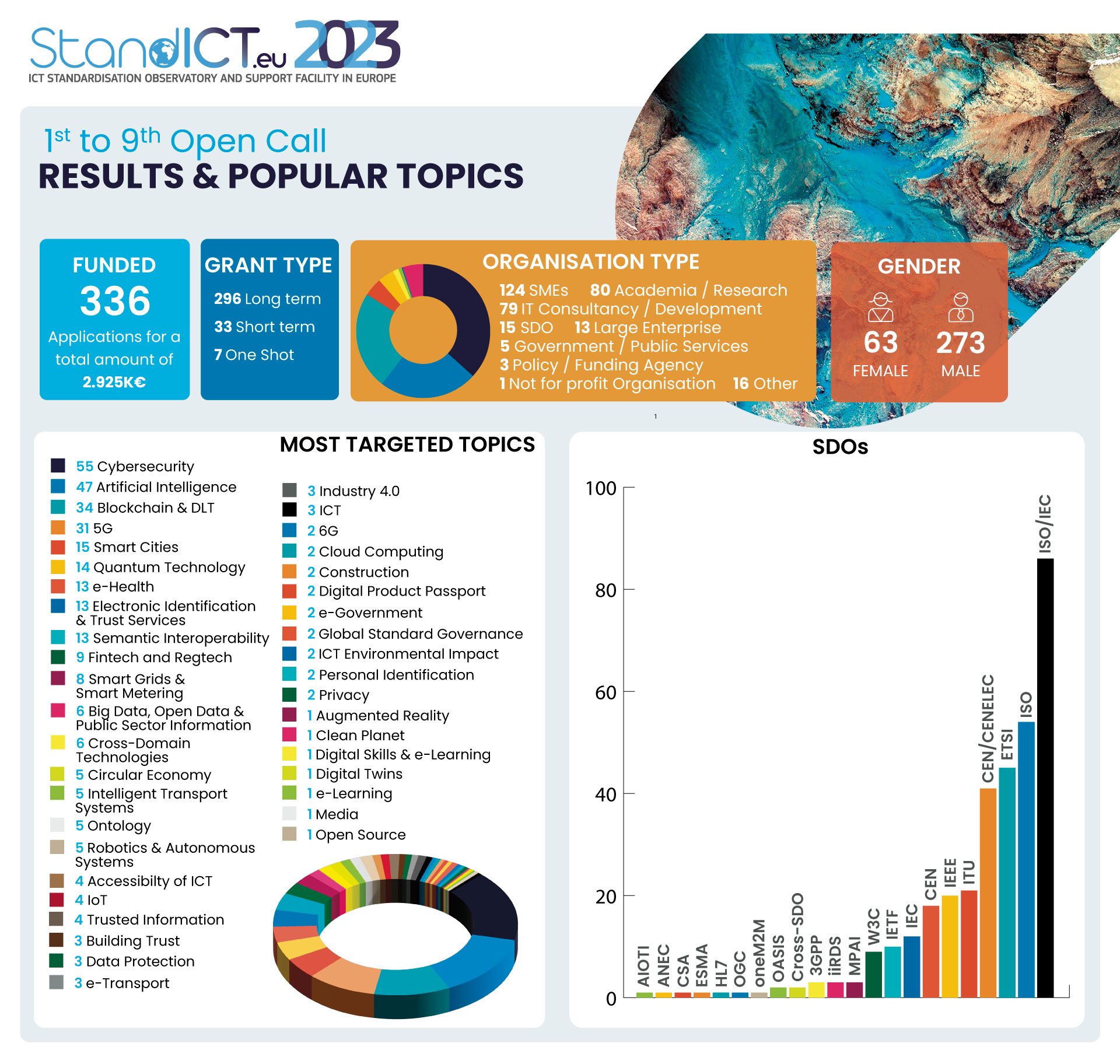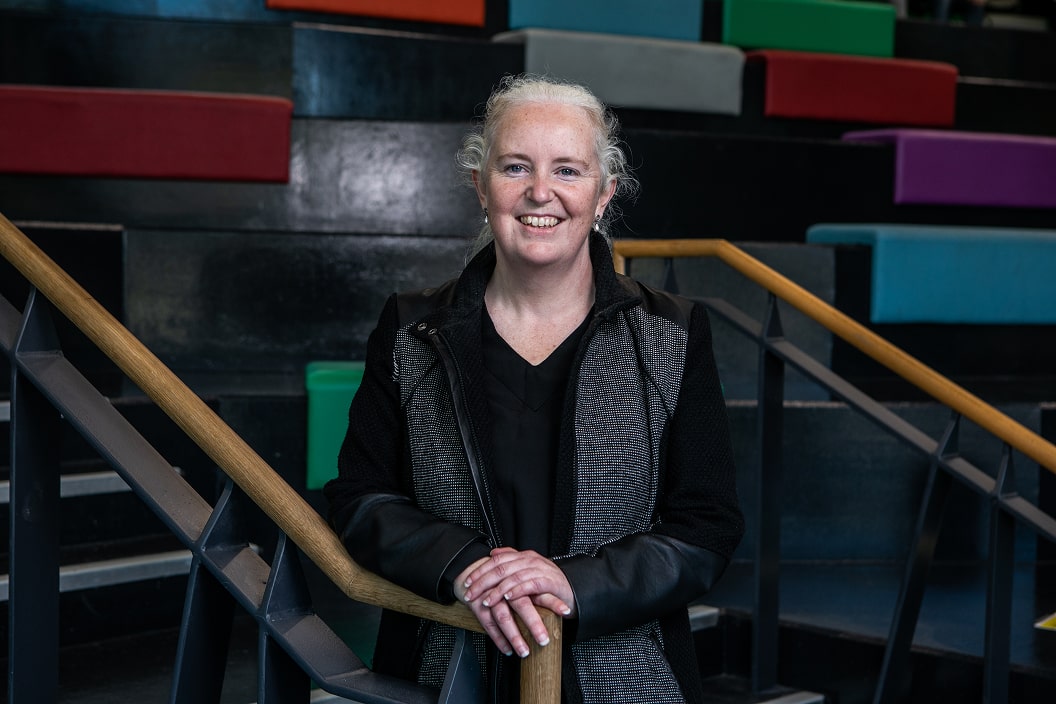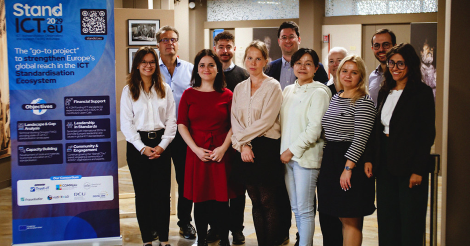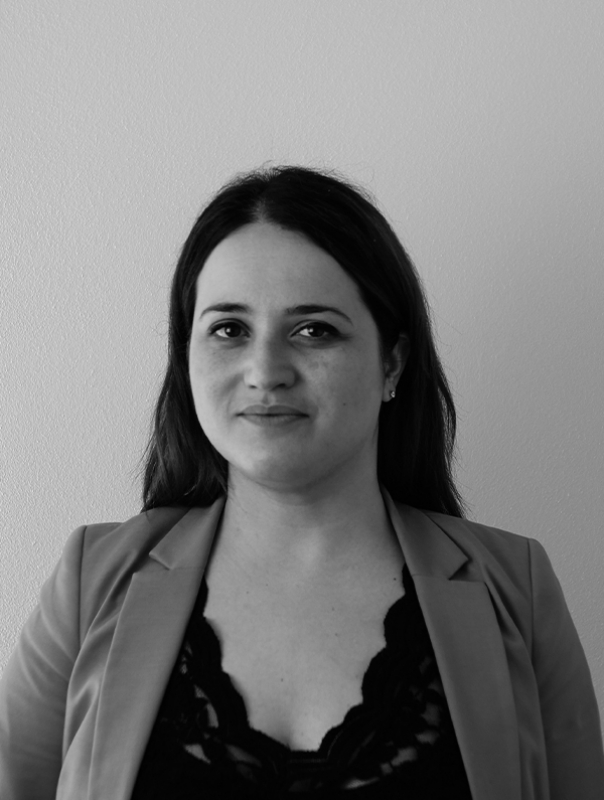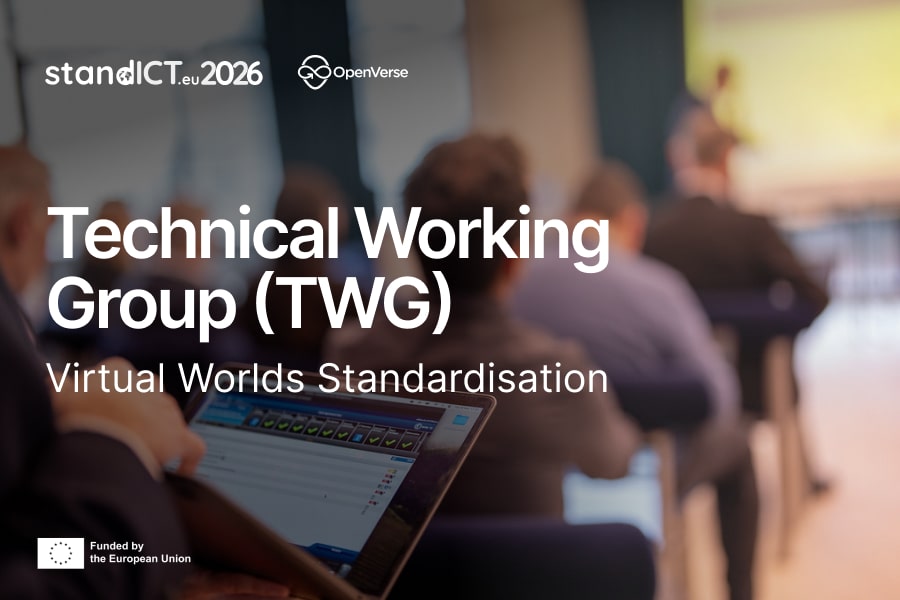Read time: 6 mins
Our journey to shape the European ICT Standardisation ecosystem continues. ICT standardisation specialists can apply up until 10 July 2023 and join one of our over 500 StandICT.eu ‘Fellows’ who have received funding since 2018 when we first rolled out this engaging project.
First Open Call under StandICT.eu 2026
The StandICT.eu consortium is thrilled to announce the launch of the first in a series of nine new open calls that will run from May 2023 through to April 2025 under the new contract funded under the Horizon Europe Programme of the European Commission StandICT.eu 2026 project. The calls will allocate € 2,925,000 in much needed funding to support European Standardisation specialists working on ICT standards, participate in and bring a European perspective to international and global SDOs, through the StandICT.eu Fellowship Programme.
In the past 6 years, [2018-present day], StandICT.eu has regularly provided funding and support through a series of 18 Open Calls totalling nearly 6 million euros and funding 586 successful European experts working on standardisation ranging from SMEs, IT consultancies and Academia and Research Organisations working on various strategic ICT standardisation topics, among which cybersecurity, artificial intelligence, blockchain and 5G proved to be the most popular topics.
StandICT.eu Open Call priorities work hand in hand with those topics listed under the ICT Rolling Plan for Standardisation and we shall continue to do so. The project is proud of its agile approach to responding quickly to market needs. As a result, under this first open call, applications tackling Citiverse/Metaverse and Digital Product Passport (DPP) domains are particularly welcome by all applicants, whilst not excluding naturally any of the other topics listed in the ICT Rolling Plan.
Citiverse/Metaverse and Digital Product Passport, two key topics
Natural and virtual worlds have continued to blend at a rapidly emerging pace, resulting in the Metaverse as we know it. This online network of immersive virtual worlds enables real-time interaction and seamlessly merging digital and physical domains. The Metaverse provides a limitless range of opportunities for industries and services and as a huge opportunity for creative expression . However, this must go hand in hand with significant ethical, regulatory, and societal challenges. To align with European values and principles, the Metaverse must prioritise openness, human-centeredness, trustworthiness, safety, and ethics. It should provide equal opportunities for all, not solely focused on commercial gain but also tackle pressing social issues such as healthcare and environmental sustainability.
Big tech companies will likely drive the metaverse architecture in defining technical standards and protocols. The risk is that some tech companies will attempt to shape the emerging metaverse standards so as to foster (or at least not adversely affect) their business practices.
- Tambiama Madiega, Polona Car and Maria Niestadt with Louise Van de Pol, Members of the European Parliamentary Research Service
ICT standardisation is paramount in the context of the DPP (Digital Product Passport). Both the European Green Deal and the New Circular Economy Action Plan both recognise the digital product passport as a means to promote sustainable product policies and enable informed choices for professional users and consumers. The European Green Deal specifically highlights the potential of digital product passports to provide information on a product's characteristics such as origin, composition, repair and dismantling possibilities, and end-of-life handling.
StandICT.eu has highlighted the importance of this topic in a dedicated Walk & Talk Webinar on Digital Product Passport held on the 28th of April 2023, where the StandICT.eu Landscape of Standards Report on Digital Product Passport was launched.
ICT standards are crucial in enabling the implementation of product passports. They are relevant in various aspects, ranging from identifying and capturing data, to sharing and analysing it. Standards also define the necessary IT and network infrastructure, as well as data formats and governance rules. They provide tools for working with data and design, and establish methods and metrics for testing and benchmarking.
The overall NorthStar of DPP is addressing the sustainability of a product in a way it can increase its circularity. The overall narrative is addressing individual citizen consumer needs and social needs with less materials, with less natural resources.
- Ilias Iakovidis, Adviser, Digital aspects of green transition at European Commission DG CONNECT
First Open call, Who can apply?
Potential applicants are standardisation specialists, defined as professionals with proven expertise and experience in standardisation activities e.g. previous contributions to standards developments, participation in various SDO groups, previous or current chairs etc in the respective priority area. Individuals or natural persons residing in the European Member States and Associate Countries from both public and private sectors, industry and service companies including SMEs and start-ups, academia and research, and national and European associations, including NGOs representing consumers interests, can receive financial support.
In particular, the target of StandICT.eu open calls are European experts who have deep knowledge in one of the priority areas covered by the Open Calls, and have experience regarding developments of standards.
What else does StandICT.eu do in addition to providing funding to European ICT Standards experts?
StandICT.eu 2026 builds on the success of the previous two editions (2020-23 & 2018-19 StandICT.eu initiatives), obtaining the recognition of the “go-to” project on ICT Standards in Europe. StandICT.eu 2026’s principal goal is to strengthen its global reach in the European ICT Standardisation Ecosystem, by launching and managing a robust and efficient facility supporting the Fellowship Programme with € 2,925,000 funding earmarked over 36 months with 9 Open Calls.
The project also prioritises technical areas for the formation of Technical Working Groups (TWGs) and manages their expert member engagement, chair selection, training, and standards collation. It also develops Landscape Reports, Gap Analysis Reports, Regulation Mapping Reports, and Other Policy and Strategy Documents. TWGs include AI-powered cybersecurity, Federated Data Sharing, 5G/6G technology, EDGE Technologies, Metaverse, Blockchain/DLT, Sustainable Circular Economy/(Twin Transition for SMEs), Cloud, AR/VR, Quantum Technologies. Peruse all of our published Landscape analysis reports here.
StandICT.eu liaises with CEN-CENELEC and its national members via the joint CEN-CENELEC WG STAIR chaired by Knut Blind (Fraunhofer, StandICT.eu project partner).
Over the years, StandICT.eu has become a beacon for ICT standardisation experts and more broadly for the European ICT standardisation ecosystem. Its action has involved and empowered European stakeholders participating in the development of open technical specifications and standards with the aim to represent EU values and ethics, strengthen the take-up, scalability, cross-border and cross-sector interoperability of their tech solutions and we look forward to continuing on this journey over the next three years.
Who is behind StandICT.eu 2026?
Dublin City University, DCU (IE, Financial & Administrative Coordinator) and Trust-IT Srl (IT, Technical Coordinator), technically coordinates and drive the effort with highly experienced partners: Open Forum Europe (BE), AUSTRALO (ES), Digital SME Alliance (BE), and Fraunhofer Institute for Systems and Innovation Research ISI (DE).
